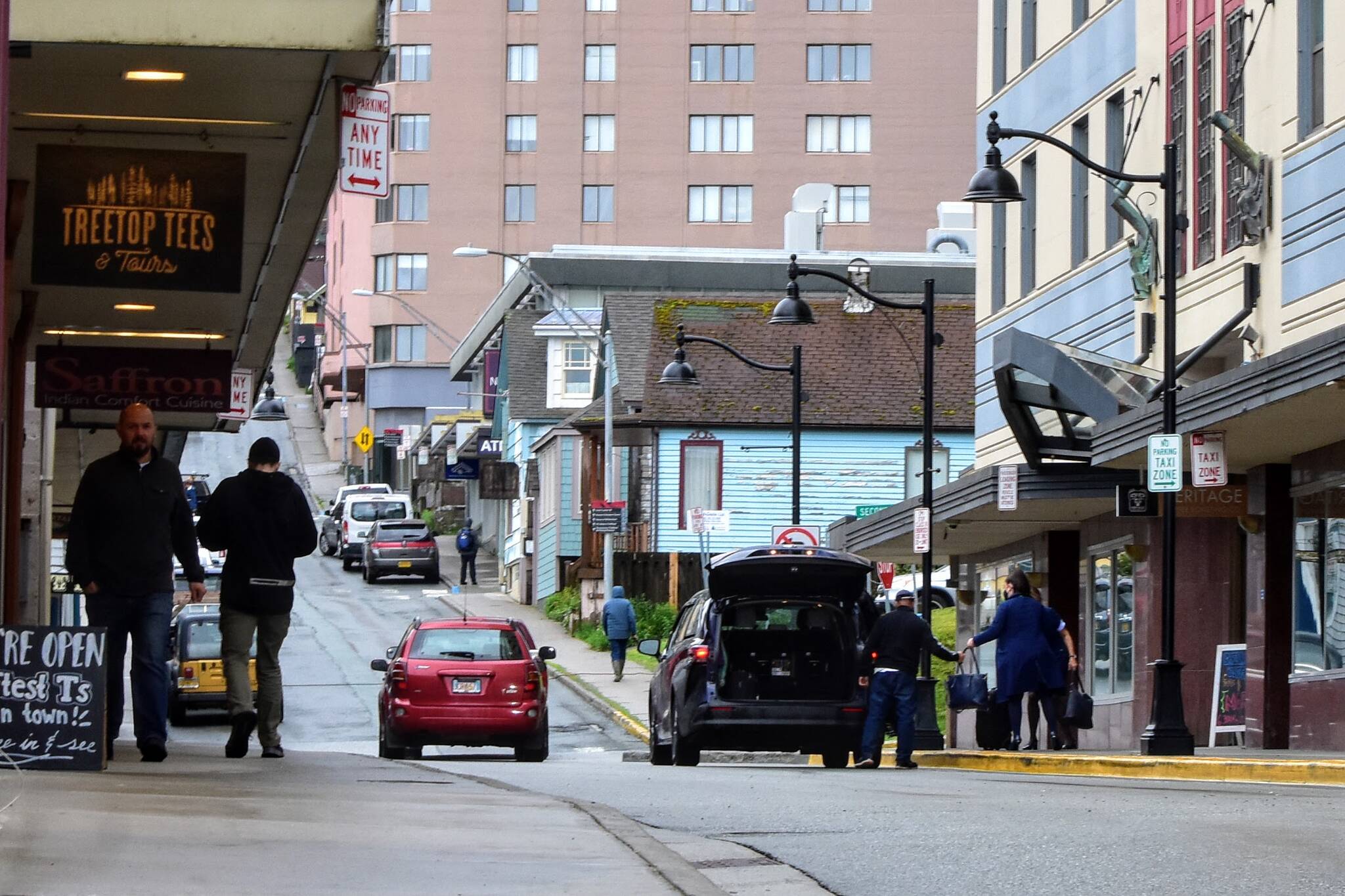On Wednesday night, Jeff Rogers, finance director for the City and Borough of Juneau, told the city’s Finance Committee that he stands by this spring’s commercial property assessments —despite the volume of complaints and appeals the city has faced over the changes.
After a decade of relatively flat assessments, commercial property owners saw their property’s assessed valuation increase dramatically earlier this year.
“The issue of commercial tax assessment and appeals is receiving a lot of public attention. I’m eager as the finance director to defend our process and the staff that performed it. But, my effort is not meant to be defensive,” Rogers said.
Rogers said the city increased the base land value throughout the borough by 50% as part of this year’s assessment — a move that generated more than 200 appeals, many more than past years. The reassessment also spurred a group of commercial property owners to organize in opposition.
Committee members peppered him with questions about the process but acknowledged that assessments and appeals are an area in which members don’t have sway because the process is designed to be free from the influence of elected officials and their direct employees.
In a memo to the committee, Rogers said that the “2021 commercial assessment changes are intended to correct a systemic economic inequity.”
Strictly commercial: Property owners chafe at new assessments
That inequity, Rogers said, grew over 10 years in which the city did not adjust the base value of land in the borough. Rogers said that assessors chose not to increase assessments due to a lack of data.
“You really face a crossroads where you continue to say we don’t have enough data to be confident or you use the data you have as confidently as you can to make the best decision you can, and that’s what we did,” Rogers said. “Obviously, that has been unsatisfactory to many commercial property owners.”
In the memo to the committee, Rogers explained that the issue ultimately affects homeowners in the borough.
“Over time, this failure to keep commercial property assessments in line with market prices shifted the property tax burden from commercial landowners to residential homeowners. As a result, commercial landowners simply have not paid their fair share of property tax over the past decade. This tax shift represents a systemic economic inequity that the 2021 assessments are intended to correct,” read the memo.
Rogers said the city is following the appeal process defined in state and local law for all appeals. He noted that while the number of appellants is large, more than 98% of property owners did not appeal their 2021 assessments.
“While no one wishes for more appeals than absolutely necessary, this year’s appeals are the direct consequence of inadequate information and inadequate adjustment over the last decade,” he said in the memo to the committee.
Process questions
The heart of the issue involves the way the city conducted the assessment that led to the increase.
Rogers said the city used a mass appraisal model to determine the right assessment level. He said the model looks at available selling prices and compares them to assessed value. He said the assessor works with very limited data because buyers and sellers are not required to disclose sales data to the city.
Opponents contend that each section of town should be evaluated independently.
Rogers shared an analysis that showed that most commercial land assessments had not increased in the last 10 years. He explained that city officials know that commercial properties sell for more than they did ten years ago.
He said that using the flat 50% increase on land makes sense because it applies to all the land in the city and lays on top of the current valuation, which takes location into account.
A second check
Rogers said that CBJ will work with Marty McGee, former state assessor within the Department of Commerce and the long-time assessor for the Municipality of Anchorage, on a contract basis to review the methodology the city used for the assessment.
He also said the local team is inviting Joe Caissie, who is currently the state assessor, to “look over our shoulder” to see if he has any concerns with the city approach or results.
Rogers also suggested that the city explore a process with an industry group to have an experienced third-party assessor audit the work.
“I think the sunshine is good,” Rogers said, acknowledging that with the volume of appeals currently on the books, the additional audit is likely better slated for a different time.
Doing better
Rogers said that more data — through more disclosed sales prices — is the key to improved assessment accuracy.
He said that the 2020 ordinance requiring buyers and sellers to disclose sales prices has not resulted in a big increase in reporting.
Assembly member Loren Jones, who will leave the body in October due to term limits, suggested that future assembly members explore ways to compel greater transaction disclosure.
• Contact reporter Dana Zigmund at dana.zigmund@juneauempire.com or 907-308-4891.

